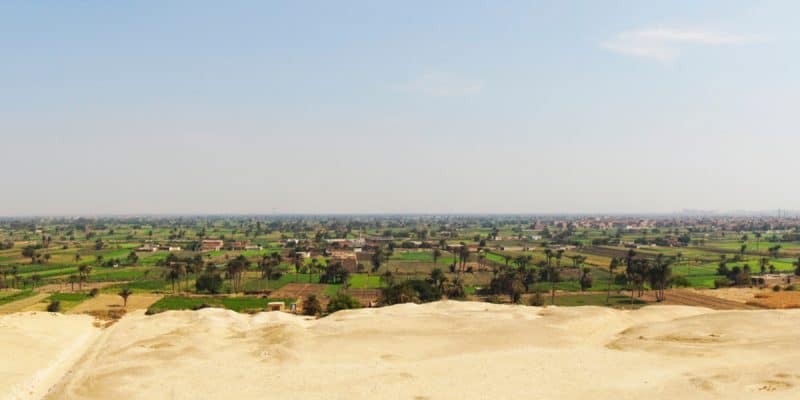The Food and Agriculture Organization of the United Nations (FAO) is supporting Ivory Coast in the implementation of a land restoration and sustainable cocoa project. Funded with US$5 million from the Global Environment Facility (GEF), Scolur-CI will be carried out in the cocoa-growing regions of the West African country.
The project on Scaling up transformative innovations in cocoa-based food systems, land use and restoration in Ivory Coast (Scolur-CI) is on track. At a cost of more than US$5 million (3.5 billion CFA francs), the project aims to support a deforestation-free cocoa sector and to restore forests in the cocoa landscapes of Ivory Coast. In particular in the localities of Guémon (in the west), Mé (in the south) and Indénié-Djuablin (in the south-east), where almost 200,000 small cocoa farmers will directly benefit from the project.
In order to support farmers in the transition to a more sustainable and profitable production method in terms of income, the Scolur-CI project will be deployed in three areas of intervention. Sustainable management of cocoa landscapes with increased forest restoration to support agriculture and environmental services, improving the efficiency and sustainability of cocoa value chains in Ivory Coast, and increasing the area of the forest landscape through conservation and restoration.
A spin-off from COP15 on desertification
The partnership agreement relating to the launch of the Scolur-CI project was signed on 11 May 2022 in Abidjan, Ivory Coast, between the Ivorian Minister of Agriculture and Rural Development, Kobenan Kouassi Adjoumani, and Maria Helena Semedo, the Deputy Director-General of the FAO. This was on the sidelines of the 15th Conference of the Parties (COP) of the United Nations Convention to Combat Desertification (UNCCD), which is being held in Abidjan from 9 to 20 May 2022.
“In two years, FAO has been able to mobilise expertise, work intelligently with the services of the various technical ministries concerned and mobilise partners for the finalisation of this project, which is in line with the vision of the Abidjan appeal launched at COP15. The results of this project will make it possible to solve the problems of food security, deforestation and the improvement of small farmers’ incomes,” explained Minister Adjoumani, while praising the excellent cooperation between his ministry and the FAO.
Read also-AFRICA: Ouattara mobilises his peers for the restoration of degraded lands
The Scolur-CI project is part of a series of initiatives that FAO is implementing to support the progressive restoration of forests in Ivory Coast. On 9 May 2022, at the opening of the COP15 on desertification, the organisation pledged to support the Abidjan Initiative through a financial contribution of US$20 million, or more than 12 billion CFA francs.
Still called the Abidjan Legacy Program, the Abidjan Initiative of the COP15 on desertification is “a programme for the sustainable development and transformation of the agri-food system in Ivory Coast, so that it is more sustainable, so that it creates more jobs to help people get out of poverty and give more value to certain production sectors, particularly the cocoa and cashew sectors, etc.,” explains Maria Helena Semedo, the FAO’s deputy director general.
Boris Ngounou







